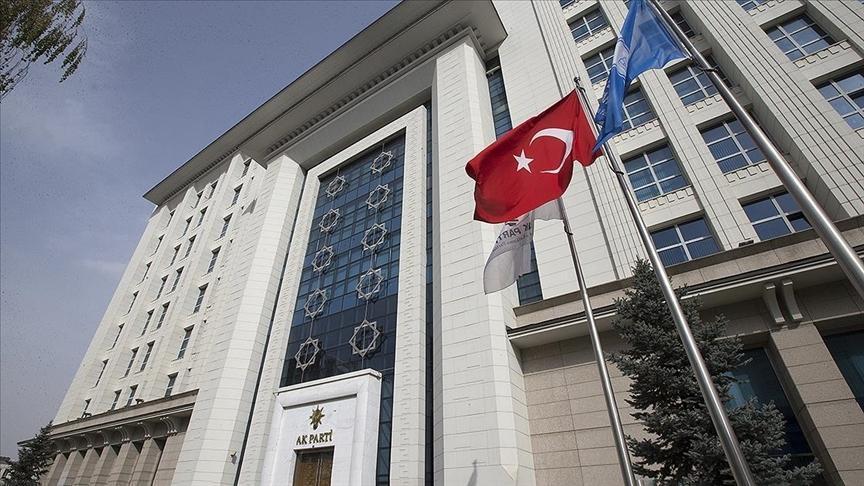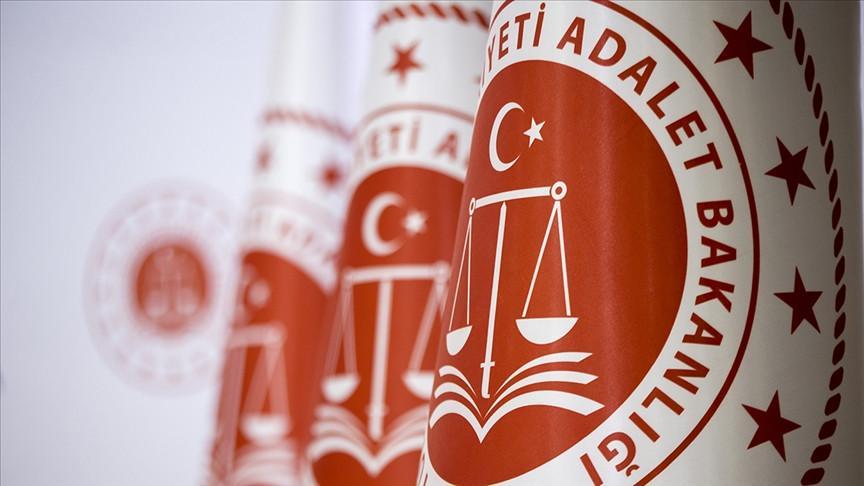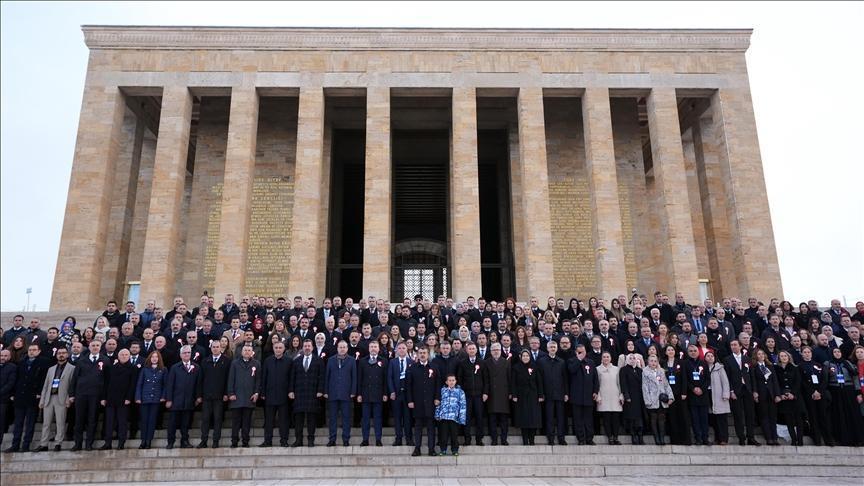PKK leader seeks to convert ‘dialogue’ into ‘negotiation’
ISTANBUL - Hürriyet Daily News

Peace and Democracy Party (BDP) co-chair Selahattin Demirtaş, along with deputy group chair Pervin Buldan, paid the a 10th parliamentary visit to İmralı island, where the PKK leader is serving life sentence. DHA photo
The leader of the outlawed Kurdistan Workers’ Party (PKK), Abdullah Öcalan, has sought to convert the ongoing peace process with Ankara from a period based on “dialogue” to one of “negotiations” amid questions surrounding the future of the process.“I think that the dialogue process that we started a year ago should be pursued with a new format; in other words, by evolving and deepening it into a meaningful negotiation. I have already submitted the necessary opportunities and means for a meaningful negotiation, to both the state and Kandil [the mountain range in northern Iraq where the PKK headquarters is based],” Öcalan said in a message released by the Peace and Democracy Party (BDP) on Sept. 15.
Earlier in the day, BDP co-chair Selahattin Demirtaş and the party’s deputy parliamentary group chair, Pervin Buldan, paid the 10th parliamentary visit to İmralı Island, where Öcalan is currently serving a life sentence.
“It is essential that especially the state creates the sufficient means and opportunities for a deep negotiation to move the process forward,” Öcalan said, without elaborating on those “sufficient means and opportunities.”
Though it has not been officially confirmed by government authorities, Öcalan and Ankara have reportedly agreed to a three-phase solution to end the three-decade-old conflict between security forces and the PKK, known as the “peace process.”
The first phase entails the withdrawal of the PKK members, which already started in April. The next phase of the process is a democratization package initiated by the government, while the final phase would facilitate a safe return for militants to their homes.
Buldan told daily Radikal yesterday that Öcalan’s latest message should not be interpreted as a suspension or annulment of the three-phase plan. However, Öcalan is eager to end the “dialogue” phase and transition to a “negotiation process.”
“What Öcalan meant is this; the process is going on. The continuation of the cease-fire means that the process is going on,” Buldan said.
“That’s to say that he says ‘dialogue process should be finalized and that we should move onto the negotiations.’ One of the counterparts of this process is Mr. Öcalan, but he is meeting only with two BDP members and his siblings. He should now be holding meetings with other people, too. He says, ‘I need to be able to talk to my lawyers, other delegations, media and civil society organizations. If such an environment is provided, then transformation to negotiations will be possible.’ That’s what Öcalan means,” Buldan said, while noting that they were not given any letter to be delivered to Kandil.
A letter was already given to an official delegation before their meeting on İmralı took place, she said, adding that they would travel to Kandil in the coming days.
“At this stage, I want to express that I find it meaningful to maintain the preservation of a posture of a reciprocal cease-fire,” Öcalan also said in the statement conveyed by the BDP.
“If we manage to overcome difficulties in line with my recommendations and thoughts, we can continue on our road with a deep negotiation that has evolved into a new format,” Öcalan said.
The Sept. 15 visit came as the government intensified attempts regarding the new democratization package two days after a meeting headed by Prime Minister Recep Tayyip Erdoğan to finalize the highly anticipated package, which is seen as a vital element of the second phase of the peace process.
An announcement on the package was expected several days ago, but the package was postponed a number of times, and is expected to be announced sometime next week. Deputy Prime Minister Bülent Arınç has previously stated that the package could be legislated in October, after Parliament resumes on Oct. 1. Issues, however, remain unresolved with regards to the package, including the mother-tongue debate, which is a sine qua non for the BDP despite a clear rejection from the government.
















